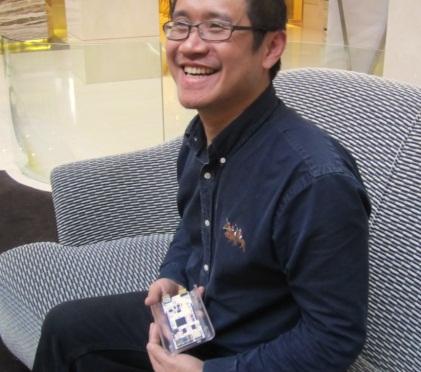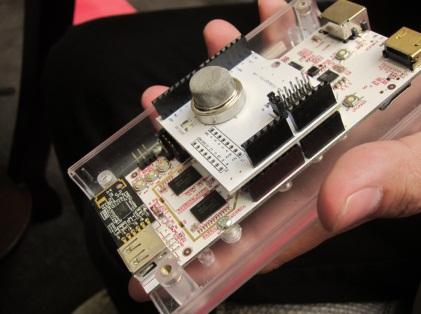|
BEIJING — I don't need to advocate for the power of open-source software and hardware communities. Hereabouts, I'm preaching to the choir. We've already seen how the Arduino microcontroller board, based on 8-bit Atmel AVR, became a runaway success behind the "maker movement." Meanwhile, the Raspberry Pi -- originally developed for the education market -- has opened the door to a host of hobbyists looking for a single-computer board, with more processing power, to run Linux. The story, however, doesn't end there. While the maker movement has a long history, the groundswell of global interest in open-source hardware and the variety of choices available to users has only begun. As a recent article on Make magazine pointed out:
Before Arduino and Raspberry Pi, things were more complicated. Going forward, things aren't just complicated again – they're bewildering. We're now seeing an explosion of new boards coming to market, and there's no reason to expect the trend to slow in the next year or two.
The article includes an exhaustive list of alternatives to Arduino, which include Texas Instruments' Launchpad MSP430 and Netduino based on STMicroelectronics' STM32FX. The popularity of the Raspberry Pi has also given birth to a host of new single-board computers such as TI's BeagleBone(s) and AMD's Gizmoboard. Then, there is pcDuino. Call me naïve, but I confess I knew nothing about pcDuino until a recent visit to China. When I was discussing the maker movement with Eva Wu, marketing manager of Allwinner Technology, in Zhuhai, China's leading apps processor vendor, she pointed me to pcDuino and the man behind it, Jingfeng Liu. It turns out that the pcDuino is based on Allwinner's A10 (based on ARM Cortex A8 single-core CPU); and its newest version, pcDuino version 3, announced last week, comes with Allwinner's A20 (ARM Cortex-A7 dual-core CPU). I eventually caught up with Liu in Beijing.
 Jingfeng Liu, ex-Marvell engineer, started pcDuino.
Jingfeng Liu, ex-Marvell engineer, started pcDuino.
Liu, a US citizen who lives in Colorado, happened to be traveling in Beijing when I was there. Liu, who calls himself a pcDuino evangelist, was talking it up to government officials, along with educators and students at Tsinghua University (which already has course work based on pcDuino). A graduate of Carnegie-Mellon University and an EE who worked at Marvell in Silicon Valley as a chip designer for hard disk drives, Liu founded pcDuino a few years back. He describes it simply as "Mini PC + Arduino." He called pcDuino "a mini PC platform," running a PC-like OS such as Lubuntu -- a lightweight Linux operating system based on Ubuntu -- and Android 4.0 ICS. It outputs video through the HDMI port. But its claim to fame is that it has a hardware header interface compatible with Arduino. In other words, the pcDuino differs from other single-board computers in that it's designed to work with hundreds of Arduino "shields" and a variety of add-on modules. The pcDuino makes them pluggable, Liu explained.
 pcDuino motherboard with Arduino boards stacked up on top.
pcDuino motherboard with Arduino boards stacked up on top.
One day, Liu realized that all Arduino hardware users don't necessarily speak the same language as people working in the Linux software environment. He told me, "With pcDuino, we've done the homework by writing all the drivers necessary to plug in Arduino shields," so users don't need to spend endless hours figuring out how to connect a variety of Arduino shields others have already developed.
转自:http://www.eetimes.com/document.asp?doc_id=1321829
| 